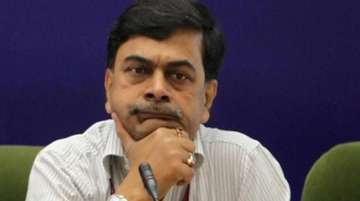The Centre has proposed a reduction in power sector funds of the states that would not maintain performance benchmarks set under the second version of UDAY scheme, which is at the draft stage, Power Minister R K Singh said on Wednesday.
The government plans the second wave of reforms in the power distribution sector and has shared the draft with states, the minister told reporters here.
The Centre in November 2015 had launched the Ujwal DISCOM Assurance Yojana (UDAY) to bring about the operational and financial turnaround of debt-laden power distribution companies.
"We have planned the second wave of distribution reforms and shared the draft with states. We are going to combine the features of UDAY scheme (meant for revival of debt-laden discoms) Deendayal Upadhyaya Gram Jyoti Yojana (DDUGJY) and Integrated Power Development Scheme (IPDS)," the power minister said.
Elaborating further, the minister said, "We would add features like system strengthening, expansion of access, loss reduction and reforms in one package. The funds would be targeted towards exceeding those reforms (targets). The funds' release would fall if the trajectory of loss reduction (by discoms) and reforms reduce. It would happen quickly."
Finance Minister Nirmala Sitharaman in her budget speech last month had said, "Our government launched UDAY in 2015 aimed at financial and operational turnaround of DISCOMs. The government is examining the performance of the scheme and it will be further improved."
The UDAY scheme was aimed at reducing interest burden, cost of power and losses in distribution sector, besides improving operational efficiency of discoms within a turnaround period of three years.
Speaking about the controversy over renewable power tariffs in Andhra Pradesh, Singh said, "The Andhra Pradesh Government has clarified that they would not open all PPAs (power purchase agreements). It would be only cases, where there is manifest wrongdoing."
The Andhra Pradesh Government last month had asked the state-run power giant NTPC and Solar Energy Corporation of India (SECI) to lower the renewable energy tariff in some concluded power purchase agreements. The SECI and NTPC had reportedly refused to lower the tariff. Now the matter is subjudice.
The minister also launched the State Rooftop Solar Attractiveness Index–SARAL on Monday at the Review Planning and Monitoring (RPM) Meeting with States and State Power Utilities.
The MNRE has developed the State Rooftop Solar Attractiveness Index–SARAL that evaluates Indian states based on their attractiveness for rooftop development. SARAL is the first of its kind index to provide a comprehensive overview of state-level measures adopted to facilitate rooftop solar deployment. Karnataka has been placed at the top under the SARAL index for 2018-19, followed by Telangana, Gujarat and Andhra Pradesh.
ALSO READ | Sitharaman's power push: UDAY scheme to be improved, new package soon
Latest Business News
